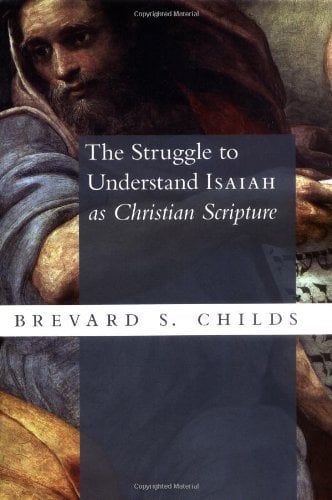In his teaching and preaching of Isaiah, Calvin starts with the Hebrew text itself and he is always focusing on a particular text and he seeks to help the audience understand the meaning of the words in that text. In his Isaiah commentary he seldom resorts to the LXX, and he often paraphrases things to help people better understand the text. The exception to the rule of not using the LXX is when the NT author for example Paul in Rom. 9.22 citing Is. 10.22 in the LXX. Sometimes he has trouble reconciling the differences between the Hebrew and the Greek texts of Isaiah. When Calvin encounters a difficulty in rendering a word, he often chooses the rendering that makes the best sense of or on the basis of the larger context. Calvin approaches his task of interpretation with considerable literary sensitivity, noting Isaiah’s skill in using metaphor, paronomasia etc. Calvin shows respect for the rabbis, not as interpreters of the text, but as careful establishers of what the text originally said. Calvin in fact offers almost exclusively negative comments about rabbinic exegesis.
Calvin says that Isaiah’s message is about Judah and Jerusalem, everything else being peripheral. However, the subject matter of Isaiah extends beyond his immediate historical context. It “encompasses God’s complete salvific purpose for the church and the world….The prophet inspired by the Spirit envisions past, present and future. However the distinction between the kingdom of the world and the kingdom of Christ…is revealed only through the eyes of faith” [see his comment on Is. 60.5]. In Calvin’s view, the Bible is the living Word of God and has its own voice and creative force and impact, and does not require exegetical gymnastics to make it relevant or fresh or meaningful today.
A good illustration of Calvin’s use of the principle of accommodation can be seen in his exegesis of Is. 6 where he says of course Isaiah didn’t really see the God who is invisible. Rather, God condescended to reveal himself in a way, using the image of a throne, a robe, a bodily appearance to accommodate himself to Isaiah’ finite mind and understanding. This is not deceitful, but a limited accommodating way of presenting the truth about God. “Prophecy is not limited to single events in history, but encompasses the entire historical intervention of God into the future.” The complete fulfillment is anticipated in historical stages, with partial fulfillments happening along the way.
One of the things that links the two testaments for Calvin, is of course Christ himself, and in fact his use of Isaiah (Lk. 4 and Is. 61). Christ encourages his followers to see the prophecies of Isaiah as fulfilled in him, and as a prophet himself Christ had a right to say so on this matter. Calvin believes Paul is the best interpreter of Isaiah, and when Paul follows the LXX rather than the Hebrew Calvin will argue the essential meaning of the text has not been changed in doing this (e.g. the use of Is. 28.16 in Rom. 9.33). Calvin regularly draws out the theological implications of Isaiah at the end of each section of exposition, and as Childs says, what one sees is that Calvin is constructing a Biblical theology almost entirely from the OT. In my view this is a mistake, in starting point and in some of the basic assumptions in some respects. One needs to follow the lead not of Calvin but of the NT writers who start with Christ and see the OT through Christological and eschatological and even ecclesiological glasses. This starting point is also why Calvin says things like the law of God is a perpetual ordinance, or he sees there being only one covenant of God between himself and humanity. Ironically, this is precisely not Paul’s view of the matter, even though Calvin like Luther is more indebted to Paul than any other person for his theological and ethical thinking.













